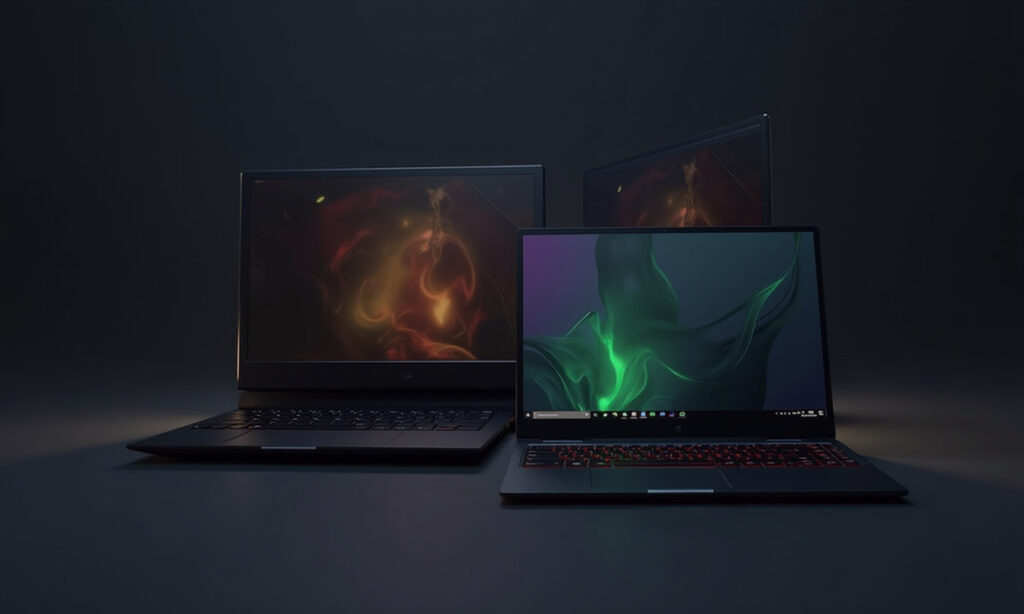The Tariff Tightrope: How New Tariffs Are Disrupting Laptop Sales
In a move that’s sending shockwaves through the tech community, Framework Computer and Razer have announced that they are halting the sale of certain laptop models in the U.S. due to the recent hike in tariffs. This decision comes on the heels of new tariffs that took effect on April 5, significantly impacting the profitability of these products.
Framework’s Dilemma: Selling at a Loss
Framework Computer, known for its modular and customizable laptops, has decided to pause sales of its lower-end models, including the Framework Laptop 13 systems powered by the Ultra 5 125H and Ryzen 5 7640U processors. The company has stated that with the new tariffs, selling these models would result in a loss, a scenario they are keen to avoid. This move underscores Framework’s commitment to maintaining consumer-friendly pricing without overcharging its customers.
Razer’s Response: A Strategic Pause
Razer, a stalwart in the gaming laptop market, has also suspended sales of its flagship Blade laptops in the U.S. Although Razer has not issued an official statement, the timing of this move aligns with the implementation of the new tariffs. Razer’s website now redirects users to a “Notify Me” page for updates on the availability of these products. This pause affects not only laptops but also other products like the Razer Edge handheld console.
The Broader Impact on PC Hardware
The current tariff situation is just one more challenge in an already volatile PC hardware market. The prices of Nvidia and AMD GPUs have been soaring due to inflation, scalping, and now tariffs, making it difficult for consumers to purchase these components at their recommended retail prices. The uncertainty surrounding these tariffs has companies like Framework and Razer reevaluating their pricing strategies to avoid significant financial losses.
What This Means for Consumers and the Market
For consumers, this means a temporary scarcity of certain laptop models and potentially higher prices once the tariffs are factored into the cost. It also highlights the broader issue of how trade policies can disrupt the tech industry. Companies are forced to make tough decisions that balance their financial sustainability with consumer affordability.
The GPU Market: Next in Line?
The GPU market, already plagued by high prices and supply chain issues, could be the next to feel the pinch. With the upcoming Nvidia RTX 5060 Ti GPU and other models on the horizon, the question looms whether these products will also be impacted by the tariffs. If so, it could lead to further price hikes or even halts in sales, similar to what Framework and Razer are experiencing.
Practical Implications and Future Uncertainty
As the tech industry navigates these challenging waters, several practical implications come into play:
- Price Increases: Consumers may face higher prices for laptops and GPUs as companies pass on the increased costs due to tariffs.
- Product Availability: Certain models may become temporarily or permanently unavailable in the U.S. market.
- Alternative Markets: Companies might focus more on other regions where tariffs are less severe, potentially shifting their sales strategies.
- Innovation Delay: The financial strain could slow down innovation and the launch of new products as companies consolidate resources to manage the tariff impact.
The situation is fluid, and only time will tell how these tariffs will reshape the landscape of the tech industry. One thing is certain: PC enthusiasts and gamers will need to be patient and prepared for a potentially turbulent market ahead.
What’s Next?
As the dust settles on the current tariff situation, it’s crucial for tech enthusiasts to stay informed. Here are a few things to watch out for:
- Official Statements: Keep an eye out for official announcements from Framework, Razer, and other affected companies regarding their sales strategies.
- Alternative Products: Consider alternative products that may not be affected by the tariffs or look into third-party retailers that might still have stock.
- Policy Changes: Follow updates on trade policies and potential revisions that could impact the tech industry.
In the meantime, the message is clear: the tech industry is at a crossroads, and the decisions made now will have lasting implications for consumers and companies alike.
